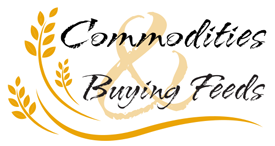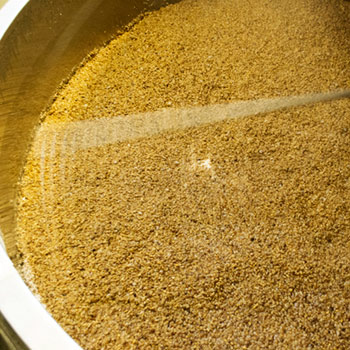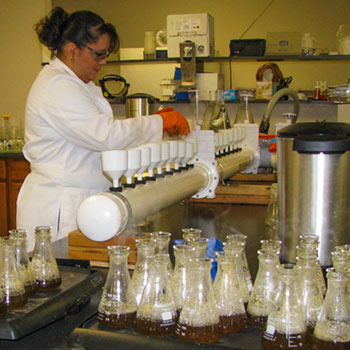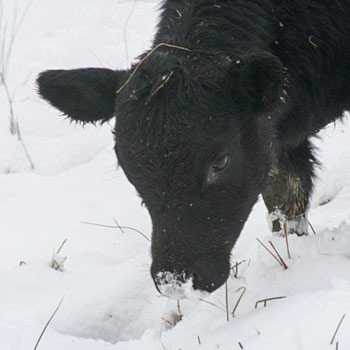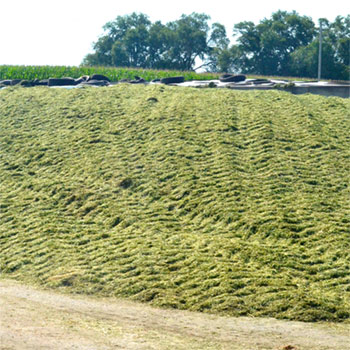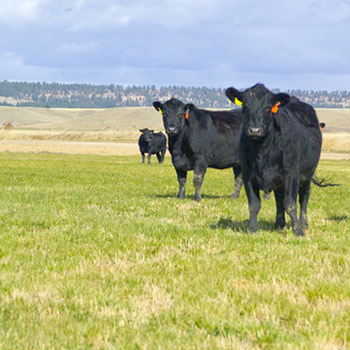
“Meat buyers won’t mess with Select anymore,” said CattleFax Analyst Duane Lenz, pointing out a $24 Choice advantage and an additional $10 Choice-CAB price spread. “Their customers don’t want it.”
Beyond the Storm
There is a silver lining in today’s cattle market.
Disappointing cattle prices loom like storm clouds. A third of producers are losing money, while others get by with modest returns and worry about those thunderheads.
There are silver linings, of course.
CattleFax Analyst Duane Lenz told the 2019 Angus Convention crowd there could be another year or two under the cloud. Then he’s optimistic, bullish even, for future beef prices. Consumer beef demand for high-quality beef is stronger than it’s ever been.
That’s especially important because growing supplies will need growing demand, projected at an extra pound of beef per person next year. More beef in grocery carts means opportunity for cattlemen raising the right kind of cattle, he says.
“Meat buyers won’t mess with Select anymore,” Lenz said. “Their customers don’t want it.”
Paying for quality
The widening Choice-Select spread reflects that. A six-year average through 2018 was $8-$9 per hundredweight (cwt.), but 2019 looks to finish near a record $24 Choice advantage.
“And that’s not even CAB® (Certified Angus Beef® brand), just commodity Choice,” he said, noting the line between high-Select and low-Choice is becoming blurred. For those with premium Angus cattle (those grading in the upper two-thirds of Choice or higher), the CAB-Choice spread at $10 per cwt. supports additional premiums.
Rainy-day chores to ensure future market premiums could include analyzing herd data and poring over sire data to find the best matches. Producers might even consider moving their calving dates to hit a better seasonal market.
The U.S. beef cow herd seems to have reached a stable size of 29 to 32 million head, currently recovered to the predrought level of 10 years ago, Lenz said. Minor liquidation is expected over the next couple of years before the fed-cattle harvest reaches a cyclical high in 2021.
Finding silver linings now
Each year between now and then will still have its opportunities, its silver linings. Thinking about selling your 2019 calves outright?
“Cool your jets,” Lenz said. They’ll have more value with added pounds, so he suggested a “look at retaining ownership, especially for Angus producers that are producing quality beef that will grade Choice or better.”
Again, it’s consumer demand to the rescue. The economy is generally good enough to let people spend their money on higher-priced, premium protein options. But not just any beef — they want quality.
Clouds may be dark and growing, but Lenz said brighter days lie ahead for cattlemen who produce a higher-quality product. The sun is nearly peeking out in Lenz’s forecast.
“I hope I’m not being too optimistic, but demand is just so good,” Lenz emphasized.
Editor’s note: Abbie Burnett is a producer communications specialist for Certified Angus Beef LLC.
